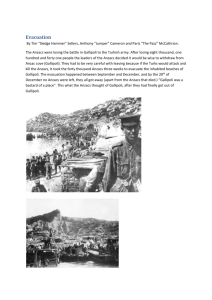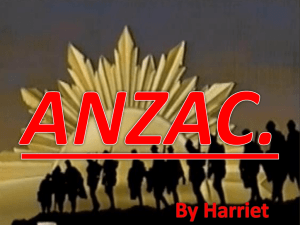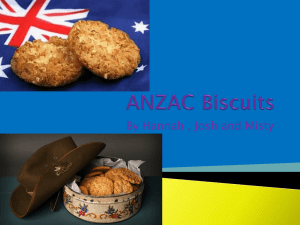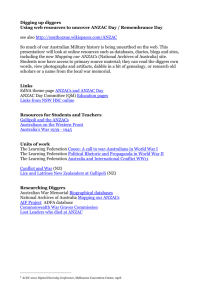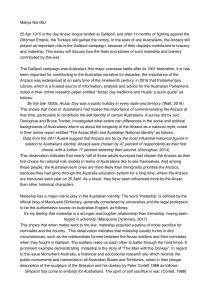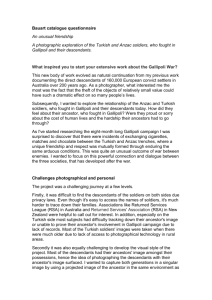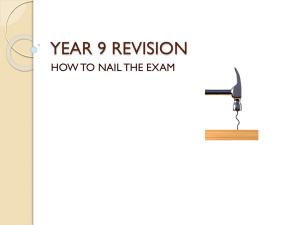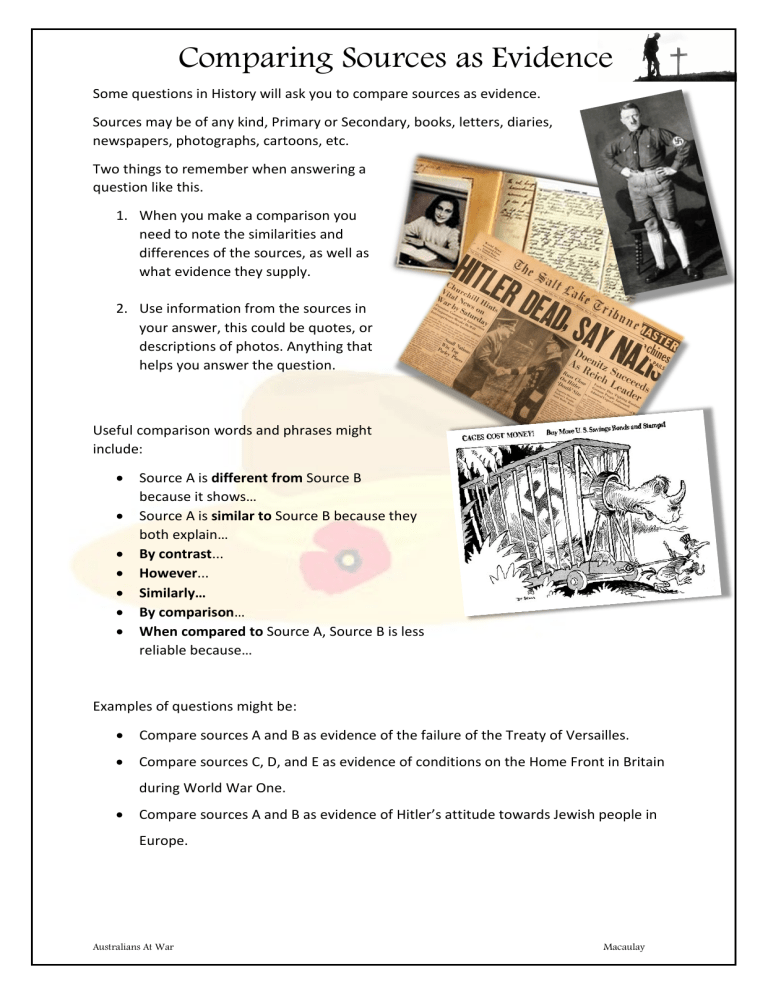
Comparing Sources as Evidence Some questions in History will ask you to compare sources as evidence. Sources may be of any kind, Primary or Secondary, books, letters, diaries, newspapers, photographs, cartoons, etc. Two things to remember when answering a question like this. 1. When you make a comparison you need to note the similarities and differences of the sources, as well as what evidence they supply. 2. Use information from the sources in your answer, this could be quotes, or descriptions of photos. Anything that helps you answer the question. Useful comparison words and phrases might include: • • • • • • • Source A is different from Source B because it shows… Source A is similar to Source B because they both explain… By contrast... However... Similarly… By comparison… When compared to Source A, Source B is less reliable because… Examples of questions might be: • Compare sources A and B as evidence of the failure of the Treaty of Versailles. • Compare sources C, D, and E as evidence of conditions on the Home Front in Britain during World War One. • Compare sources A and B as evidence of Hitler’s attitude towards Jewish people in Europe. Australians At War Macaulay Comparing Sources as Evidence A Venn diagram is one way of organising your thoughts. You can easily show differences and similarities between sources. Late one afternoon when returning from town we were met by a few women and children who told us that Mexican troops from some other town had attacked our camp, killed all the warriors of the guard, captured all our ponies, secured our arms, destroyed our supplies, and killed many of our women and children…when all were counted, I found that my aged mother, my young wife, and my three small children were among the slain. – Geronimo Source A Source B Both Personal Account Geronimo’s perspective About Geronimo’s family Possibly biased against Mexicans Australians At War Primary Sources About Geronimo Focus on violence Newspaper article United States Perspective About Geronimo’s violence Likely biased against Geronimo Macaulay Comparing Sources as Evidence Source A Source B Anzac Soldier, 1915 From the website “Turkey in the First World War” Dr. Altay Atlı, 2003-2019 Our troops made a successful advance and, according to the number of injured coming in, they paid dearly for it. What a pitiful sight they presented. They had been 20 hours lying all over the place with great gaping wounds. Some had both legs broken and the pain they endured coming down the steep sides was almost unendurable. Question : In the morning of April 26, 1915, the total Turkish strength at the northern part of the peninsula, the Arıburnu sector, was around 10 thousand men supported by 16 machine guns and 28 pieces of artillery. They were to face 20 thousand Anzacs. Fortunately, Anzacs had only been digging during the night, instead of taking advantage of this weakness. Mustafa Kemal’s immediate response was to move two battalions of the 72. Regiment to the left wing in order to fill the gap. Compare sources A and B as evidence of the casualties inflicted at Gallipoli upon the ANZACs. Both Sources A and B contain evidence that shows us the nature of and reasons for casualties at Gallipoli. Source A is a primary source detailing the aftermath of a “successful advance” of the Anzacs. It is also written by an Anzac and so comes from his perspective, it may not be biased but contains emotive language which may be explained by the intense experience. . This source explains that although there were successful attacks during the ultimately doomed campaign, it came at a high cost paying “dearly for it.” The source describes the “gaping wounds” the soldiers received and lack of immediate attention, for at least “20 hours”. “Broken legs” and extreme pain was also part of the life at Gallipoli for the casualties. Source B, unlike Source A, is a secondary source. It is not a personal account, but a researched piece of writing from an historian. It may come from a Turkish perspective but there is no emotive language and so, in contrast to source A, doesn’t appear biased or caught up in the emotion of the event. While source B does not contain the graphic imagery of the aftermath of battle the way source A does, instead it contains evidence of the reasons for the casualties. While the Anzacs initially outnumbered the Turkish troops by 20,000 to 10,000, the Anzacs were slow to dig in and Turkish reinforcements were called in to “fill the gap”. Also facing the Anzacs was heavy weaponry such as ”16 machine guns and 28 pieces of artillery” which accounts for the horrible injuries mentioned in source A. Australians At War Macaulay Comparing Sources as Evidence Source C Source D ANZAC Soldier 1915 Extract of an article from The armistice began for the purpose of burying the dead. The smell is something awful. Some of the bodies have been lying in the heat of the sun for four weeks and of course all are unrecognisable. It is only by identification discs that the corpses are known. The ground was simply covered with dead between the trenches and estimates of 12,000 Turks killed have been made. https://nzhistory.govt.nz/media/photo/gallipoli-armistice At The Nek, Arab and Turkish infantry made repeated attempts to breach the Anzac defences, each attack collapsing in the face of accurate machine-gun and rifle fire. An estimated 3000 Ottoman soldiers died during the failed attack, and their bodies were left to rot in no-man’s-land alongside Anzac dead from earlier battles. The fouled state of the line became too much to endure, and both sides agreed to a 24-hour truce on 24 May 1915 to bury the dead. Question: Compare sources C and D as evidence of the armistice at Gallipoli. ___________________________________________________________________________ ___________________________________________________________________________ ___________________________________________________________________________ ___________________________________________________________________________ ___________________________________________________________________________ ___________________________________________________________________________ ___________________________________________________________________________ ___________________________________________________________________________ ___________________________________________________________________________ ___________________________________________________________________________ ___________________________________________________________________________ ___________________________________________________________________________ ___________________________________________________________________________ ___________________________________________________________________________ ___________________________________________________________________________ ___________________________________________________________________________ ___________________________________________________________________________ Australians At War Macaulay
